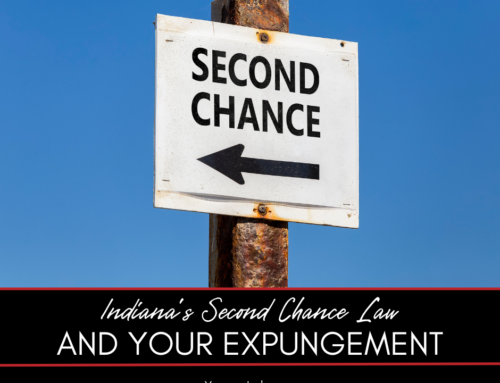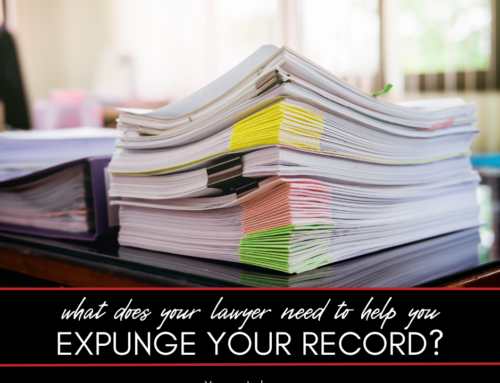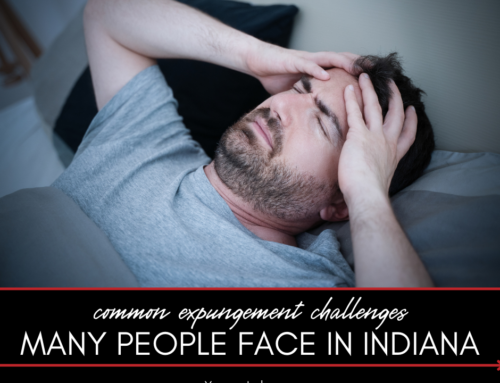
Clearing your criminal record in Indiana is a process that varies in duration depending on several factors, including the type of offense and the specific county where the expungement is filed. This guide provides an overview of the process and key considerations to help you understand what to expect when seeking to expunge your record in Indiana.
What You Need to Know About Expungement Timelines in Indiana
This guide explains the following:
- Overview of Indiana’s expungement process
- Timeline for different categories of offenses
- Factors affecting the duration of the expungement process
Here’s a closer look at each.
Overview of Indiana’s Expungement Process
Expungement in Indiana refers to the legal process of sealing criminal records from public view. It’s important to note that expungement doesn’t erase the record but makes it inaccessible to most employers, landlords, and the general public. The process begins with determining your eligibility, which depends on the nature of your offense, the time elapsed since the offense, and your criminal history.
Timeline for Different Categories of Offenses
The timeline for expungement in Indiana varies based on the category of the offense:
- Arrest Records Without Conviction: These can typically be expunged one year after the date of arrest, provided there were no convictions and no pending charges.
- Misdemeanors and Class D/Level 6 Felonies: For these offenses, you must wait five years from the date of conviction. The process may be quicker if the prosecutor consents.
- Higher-Level Felonies: More serious felonies require a waiting period of eight to ten years, depending on whether the conviction was for a violent or non-violent felony. Additionally, the consent of the prosecutor is required.
Factors Affecting the Duration of the Expungement Process
Several factors can influence how long the expungement process takes in Indiana:
- Complexity of the Case: More serious offenses or those with extensive criminal records may require longer processing times.
- County Workload: The expungement process can be faster or slower depending on the workload of the court and prosecutor’s office in the county where the expungement is filed.
- Accuracy of the Application: Inaccuracies or missing information in your expungement application can lead to delays. It’s crucial to provide complete and accurate information.
- Prosecutor’s Response: For certain offenses, the prosecutor’s consent is required, and their response time can affect the overall timeline.
FAQ About How Long Does it Take to Clear Your Criminal Record in Indiana
Check out these commonly asked questions about clearing your criminal record in Indiana. If you don’t see the answers here, please call our office and we’ll get you the information you need.
How Do I Know Which Category My Offense Falls Into?
To determine the category your offense falls into for expungement in Indiana, you’ll need to review the state’s specific guidelines or consult with an expungement attorney. The category depends on several factors, including the nature of your offense and whether it’s classified as a misdemeanor or a felony. Each type of offense is subject to different rules and waiting periods for expungement. Misdemeanors generally have shorter waiting periods compared to felonies, and the severity of the felony also plays a crucial role in categorization. Understanding this categorization is vital because it influences the expungement process, including the timeframe and the specific steps you need to take.
Can I Expedite My Expungement Process?
The timeline for expungement in Indiana is largely determined by state laws and varies depending on the category of your offense. In some cases, however, there might be a possibility to expedite the process. This generally requires the consent of the county prosecutor and is contingent on the specifics of your case, including the nature of the offense and your conduct since the conviction. While expediting the process is not always guaranteed, certain circumstances, such as a demonstrated record of rehabilitation or the non-serious nature of the offense, might persuade the prosecutor to agree to a shorter timeframe.
What Happens If I Have Multiple Offenses?
If you have multiple offenses, the expungement process in Indiana can become more complex. Each offense is assessed individually based on its own merits and falls under a specific category for expungement. This means the process could take longer, as each offense must meet the eligibility criteria set for its respective category. Having multiple offenses might also affect the overall assessment of your expungement petition, particularly if the offenses are of varying severity. It’s crucial to provide complete and accurate information for each offense to ensure that the expungement process proceeds smoothly.
Is Legal Representation Necessary for Expungement?
While hiring a lawyer for expungement in Indiana is not mandatory, it’s often beneficial. Legal representation can provide significant advantages, especially in navigating the complexities of the expungement process. An experienced attorney can help you understand the eligibility criteria, ensure that your application is complete and accurate, and represent you effectively during the process. They can also advise on strategies to potentially expedite your case and handle any complexities, particularly if you have multiple offenses or if your case involves unique legal challenges. Legal guidance can be a valuable resource in increasing the likelihood of a successful outcome in your expungement efforts.
Do You Need to Talk to an Indiana Expungement and Sealing Attorney?
If you’re ready for a fresh start, we may be able to help. Call us at 317-647-5476 or fill out the form below for a free consultation on expungement. We’re here to answer your questions and get you the fresh start you deserve.













